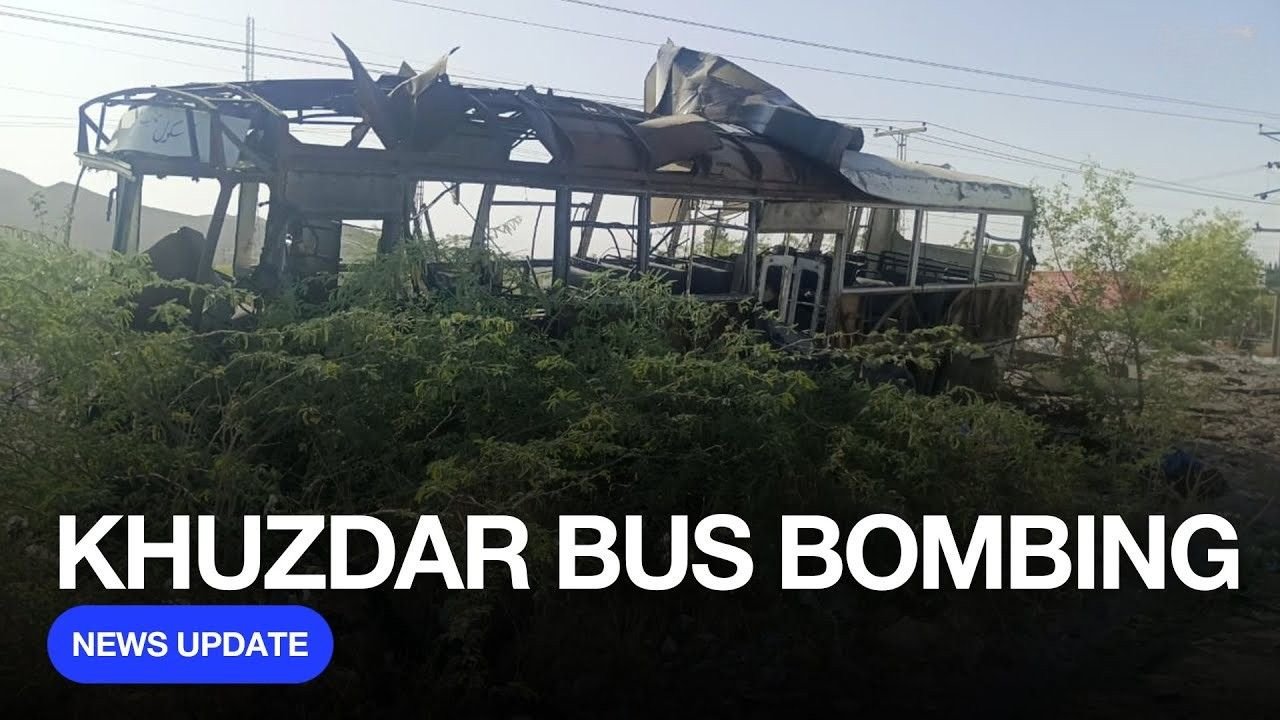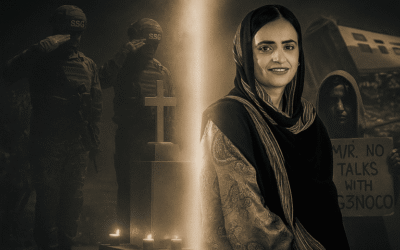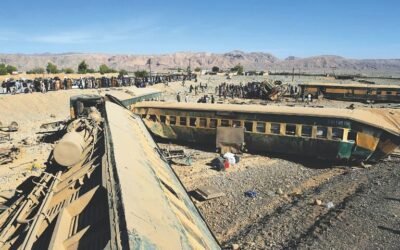On the morning of May 21, 2025, a devastating explosion targeted a school bus in Khuzdar, a remote district in Pakistan’s restive Balochistan province. The blast killed at least six people, including four schoolchildren, and injured nearly four dozen others, highlighting the region’s escalating instability and the growing vulnerability of civilians—especially children—in the face of insurgent violence.
A Targeted Attack on a School Bus
According to officials, the attack occurred at approximately 7:40 AM, as the bus was picking up students for classes at the Army Public School. The bus was struck by a vehicle-borne Improvised Explosive Device (IED) in what appeared to be a premeditated assault.
Authorities confirmed that 46 children were on board at the time of the explosion. The fatalities included four students, the driver, and his assistant. At least 38 others were wounded, many critically, prompting emergency evacuations via helicopter to Quetta for urgent medical treatment.
Images from the scene showed a charred shell of the bus, with school bags and debris scattered along the roadside.
Investigations and Claims of Foreign Involvement
Initial assessments suggest the use of a powerful explosive device, but authorities have not yet finalized their findings. There has been no official claim of responsibility, though suspicion naturally falls on armed separatist groups that have operated in the province for decades.
In a statement, Pakistan’s military condemned the attack and pointed to what it called “Indian-backed terror proxies” operating in Balochistan. Similarly, Prime Minister Shehbaz Sharif referred to the perpetrators as “terrorists working under Indian patronage.” However, no specific evidence was released, and India promptly rejected the allegations, calling them baseless and politically motivated.
This war of words between the two nuclear-armed neighbors follows recent hostilities in Kashmir, which have further strained bilateral ties.
Balochistan: A Longstanding Conflict Zone
Balochistan has long been the center of a low-intensity insurgency led by Baloch separatist groups seeking independence from Pakistan. Despite being rich in natural resources, the province remains underdeveloped and heavily militarized. Local grievances include economic exploitation, political marginalization, and human rights violations.
Armed groups like the Balochistan Liberation Army (BLA) have carried out multiple attacks on security forces, infrastructure, and state institutions over the years. Although rare, civilian targets—particularly schools—have not been immune.
Just weeks earlier, the BLA was responsible for a deadly train hijacking in Balochistan that left dozens dead. The group has also issued threats promising more operations against “Pakistani army collaborators”—a term it has historically used to justify attacks on military-run institutions, including educational ones.
International Condemnation and Response
The attack has drawn international condemnation. Both UNICEF and the U.S. Embassy in Islamabad issued strong statements denouncing the violence.
UNICEF emphasized that:
“Going to school should never be a dangerous act for any child, anywhere.”
The U.S. Embassy described the attack as:
“brutal and unconscionable,”
calling the murder of schoolchildren “beyond comprehension.”
These reactions reflect a growing concern over the deteriorating security situation in Pakistan’s southwest and the increasing threat to educational institutions.
The Bigger Picture: A Dangerous Shift in Tactics
While armed conflict in Balochistan is not new, the targeting of schoolchildren marks a troubling escalation. Historically, separatist groups have focused on military targets, energy infrastructure, and government officials. Attacks on children, especially those unarmed and traveling to school, suggest a potential shift in strategy—or a reckless disregard for civilian life.
This incident also reignites the national trauma of past tragedies, such as the 2014 Army Public School massacre in Peshawar, where over 140 children were killed by militants linked to the Tehrik-i-Taliban Pakistan (TTP).
Whether this was a calculated political message or a sign of deeper fragmentation among militant factions, the result is the same: children once again became victims of a conflict they have no part in.
Conclusion: A Nation in Mourning, and a Province on Edge
The Khuzdar school bus attack underscores the urgent need for both security and accountability in Balochistan. As families bury their children and the injured fight for survival, Pakistan’s leadership faces growing pressure to secure its schools, protect civilians, and de-escalate regional tensions.
Unless there is a meaningful shift in both domestic policy and regional diplomacy, incidents like this will continue to haunt not just Balochistan—but the entire nation.




